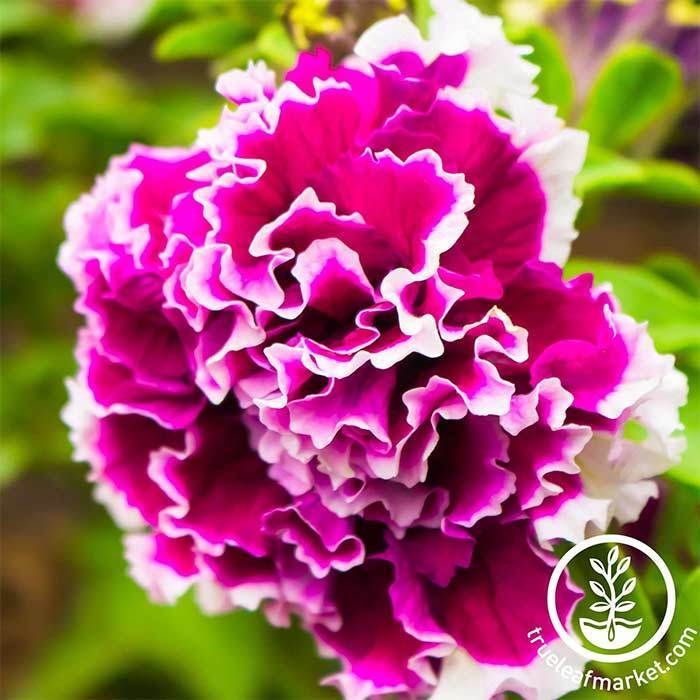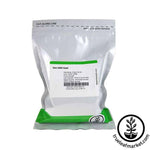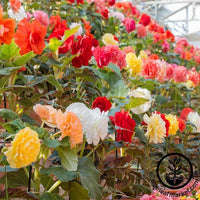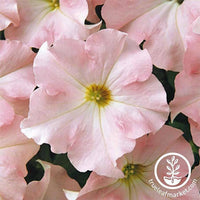
98-105 days. Pirouette petunia seeds are brilliant, easy to grow, and renowned for their early blooming that will last well up to the frost. Pirouette petunia debuted as an AAS Flower Winner for its "excellent garden performance and continuous display of contrasting colors." Pirouette seeds boast hardy 3-4 inch fully-double bicolored blooms perfect for indoor brilliance, yet robust enough to flourish out in the flower bed. Award-winning Pirouette petunia seeds grow as an ideal bedding, trim, or ground cover or as a fresh cut compliment to your next seasonal arrangement. Pelleted seeds.


















































